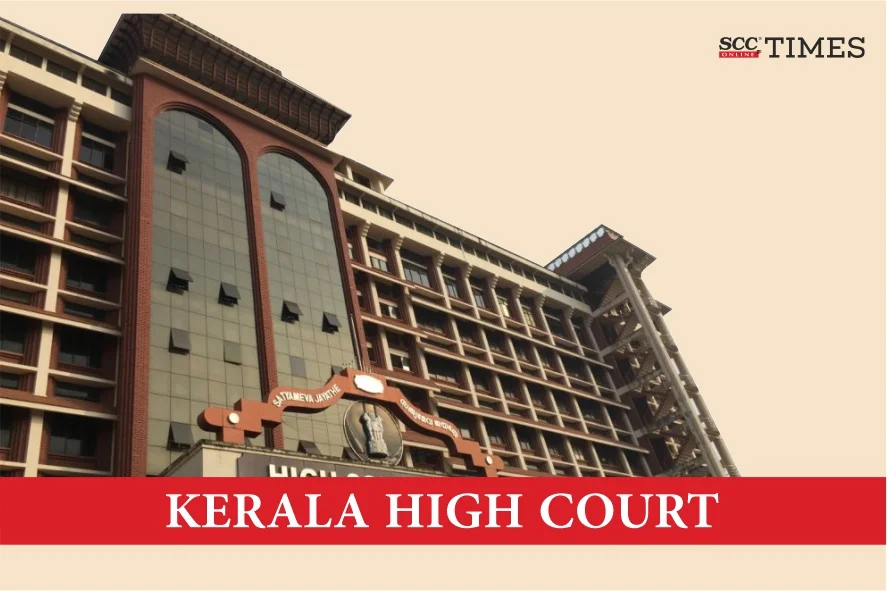Kerala High Court: In a petition under Section 439 of the Code of Criminal Procedure, 1973 (‘CrPC’) filed by petitioner, accused 3 in the original complaint, who had been accused of being involved in human organ trafficking punishable under Section 370 read with Section 34 of the Penal Code, 1860 (‘IPC’) and Section 19(a)(b)(c) & (d) of the Transplantation of Human Organs and Tissues Act, 1994, C.S. Dias, J., dismissed the petition refusing to grant bail, while observing that Courts must look into the severity and nature of the crime, and whether releasing the accused would have a detrimental impact on the society.
Background
The petitioner had been alleged to have committed offences punishable under Section 370 read with Section 34 of the IPC and Section 19(a)(b)(c) & (d) of the Transplantation of Human Organs and Tissues Act, 1994.
The State contended that the accused was part of an international human organ harvesting operation, who enticed financially disadvantaged individuals hailing from various parts of the country, with Rs.6 lakhs each for donating their kidneys, after making them believe that the sale of organs was legal. The individuals were trafficked to Iran and had their kidneys removed. The accused then transplanted such organs to patients in India, and thereafter, exploited and cheated the donors by not paying the promised money.
It was further submitted by the State that the patients in need of organs, transferred the money to the bank account of petitioner, who was fully conscious that the first accused was the kingpin in orchestrating the crime, who in turn channelled the money to the bank account of Stemma Club, a medical tourism organisation of the accused 1. Accused 4 identified potential donors and acted as an agent for accused 1 and 2.
The accused argued that he was innocent and was only a childhood friend of accused 1. He further submitted that he had merely shared his bank account details with accused 1 and that certain people transferred money to his account, which he retransferred to the account of the accused. The accused contended that he was neither a beneficiary of the proceeds of the crime, nor did he have any criminal antecedents. It was submitted that petitioner had been in judicial custody since April 2024, investigation qua himself had been almost complete and recovery had been affected, hence he prayed that he may be granted bail.
The State vehemently opposed the application submitting that the petitioner had committed an organised international crime, and there exist incriminating evidence to substantiate the involvement of petitioner. It was further contended by the State that the investigation was at a nascent stage and since nature of the crime was international, the National Investigating Agency (‘NIA’) had proposed to take over the investigation.
The State submitted that petitioner was the key link between accused 1 and the patients and the investigation had unveiled an organ racket being conducted in the country, where several others were involved under the pretext of ‘medical tourism’. It was further argued that petitioner had international connections and if released on bail, there was a possibility of him sabotaging the investigation.
Decision and Analysis
Upon hearing the parties and examining the material on record, the Court noted money had been transferred to the account of petitioner, who had again retransferred the amount to Stemma Club, and the call records showed calls made to several people.
The Court said that the Transplantation of Human Organs and Tissues Act, 1994, had been enacted by the Parliament after considering several reports of the flourishing human organ trade in India and the consequent exploitation of the economically vulnerable segments through organ removal, and illegal transplants. However, the Court noted that there existed a gap between the intent of the Act and its implementation.
The Court said that the accusations levelled against petitioner depicted a serious cross border crime which warranted investigation by the NIA, especially since national security was involved, and innocent people were being trafficked to a foreign country for organ harvesting. The Court observed that whether petitioner benefitted from the transaction was a matter of investigation to be decided at the time of trial.
The Court referred to the decision in Ash Mohammad v. Shiv Raj Singh, (2012) 9 SCC 446, wherein it was held that the larger interest of the public of the State had to be considered while considering an application of bail.
The Court said that in an application for bail under Section 439 CrPC, the Court had to look into the nature and gravity of the crime, consider whether the accused was a flight risk and whether granting bail to the accused old have a deleterious effect on the society.
Considering that the prima facie materials on record show that the petitioner had monetary transactions and frequent mobile communications with accused 1 who was absconding, the Court refused to grant bail to petitioner, dismissing the petition.
[Sajith Shyam v. State of Kerala, 2024 SCC OnLine Ker 3857, decided on 10-07-2024]
Advocates who appeared in this case :
Advocates for the petitioner: M. Vivek, Reneeta Vinu, Advocates
Advocates for the State: C.S. Hrithwik, Sr Public Prosecutor









